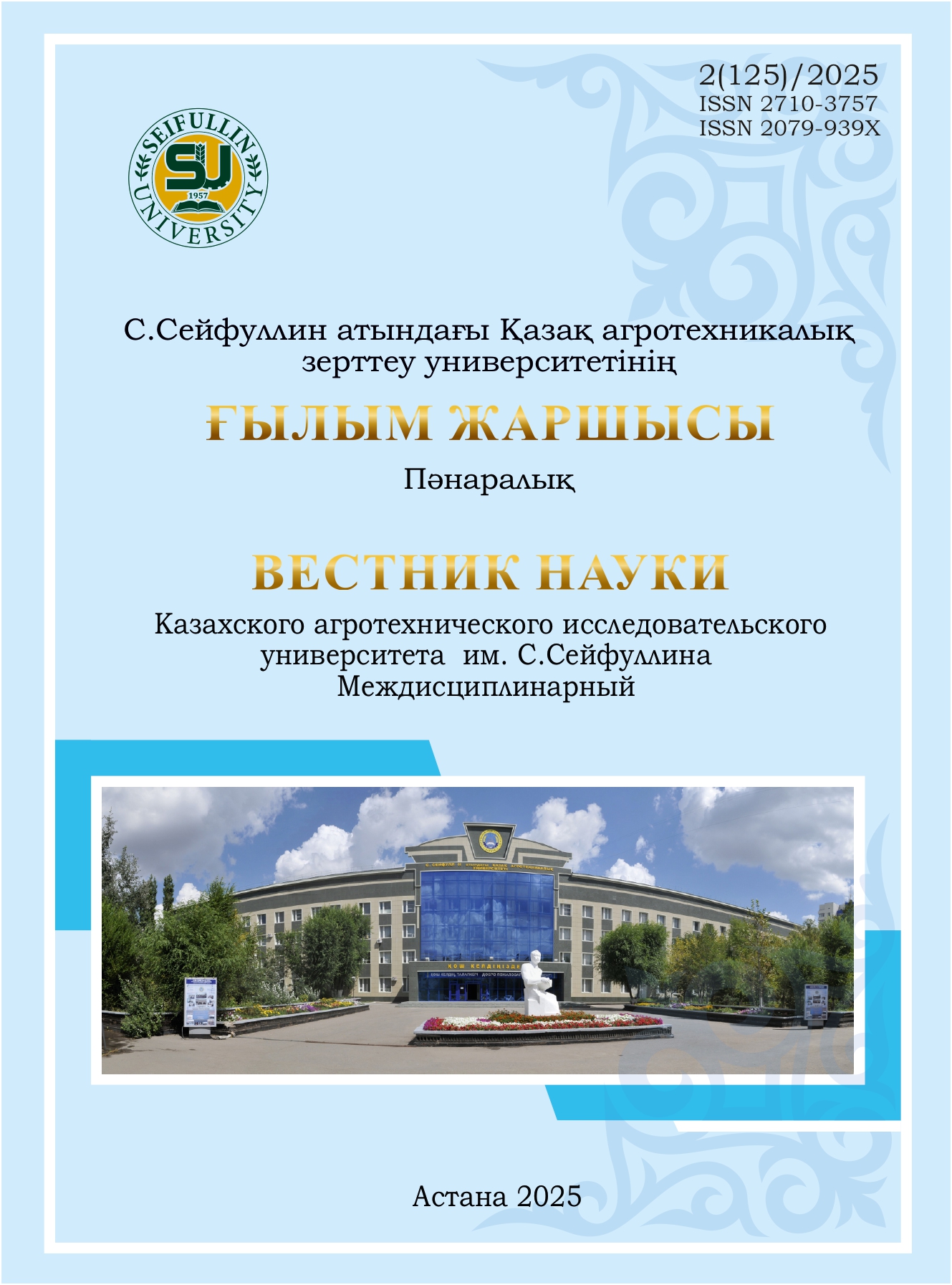Responsiveness of Kazakhstan winter wheat varieties to androgenesis in in vitro anther culture
DOI:
https://doi.org/10.51452/kazatu.2025.2(125).1891Keywords:
winter wheat; haploid technology; in vitro anther culture; embryogenesis.Abstract
Background and Aim. In wheat breeding programs, one of the main challenges is the creation of new varieties characterized by high productivity and resistance to abiotic and biotic stress factors. To create a wheat variety, breeders need 10-14 years. To accelerate this process, breeders increasingly combine traditional and biotechnological approaches, saving both time and effort. The use of anther culture (haploid technology) is one of the most effective biotechnological methods. However, scientists note the low reproducibility of existing and published protocols for haploid technology. In Kazakhstan, haploid technologies have not yet been introduced into the wheat breeding process. The obstacles include strong genotype dependence, low reproducibility of published protocols, and a low frequency of embryo-like structure formation and green plant regeneration from microspores. The aim of our research is to identify model genotypes of winter wheat that are responsive to androgenesis in order to improve the androgenesis protocol.
Materials and Methods. The studies were conducted at the Kazakh Scientific Research Institute of Agriculture and Plant Growing LLP (“KSRIAPG”), located in the southeast of the Republic of Kazakhstan, at the field station of the grain crops department and in the plant biotechnology laboratory. A total of 35 winter wheat varieties of both international and Kazakhstani origin were used as research material. The responsiveness to androgenesis was assessed using in vitro anther culture technology.
Results. The study of 35 winter wheat varieties on three nutrient media using the anther culture method revealed generally low responsiveness to androgenesis among the studied genotypes. 14 genotypes showed responsiveness ranging from 0.8 to 12 androgenic structures (AS) per Petri dish, while 18 genotypes did not respond to androgenesis induction (0 AS/Petri dish). Three winter wheat varieties: Mereke 70, Arap Improved, and Farabi- were identified asthe most responsive, with 14-17 AS/Petri dish on the C17 nutrient medium.
Conclusion. The selected responsive genotypes will be used as models for optimization and improvement of the androgenesis protocol for the Kazakhstan winter wheat breeding pool.

